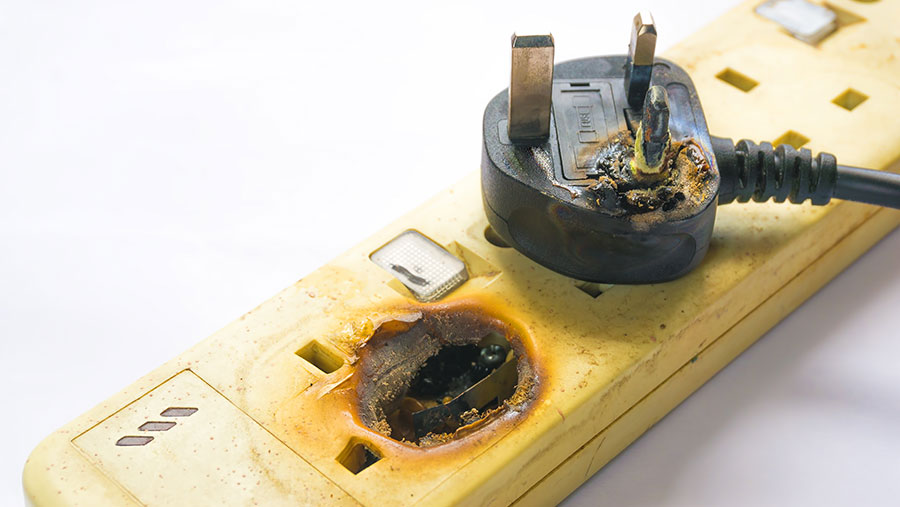Why testing electrical equipment is essential for farm tenants
 © Adobe Stock
© Adobe Stock Maintaining electrical equipment in safe working order has many benefits for both tenants and landlords and can prevent unexpected and expensive costs and stress.
For example, a tenant may have to foot the bill for fire damage to property owned by their landlord if the blaze was caused by the tenant’s negligence or a breach of the tenancy.
The Tenant Farmers’ Association (TFA) says tenants often overlook portable appliance testing (PAT) – the routine safety testing of individual electrical plug-in appliances they own on the holding or in the house, such as heaters, electrical drills and pressure washers.
PAT is not a legal requirement, according to the Institution of Engineering and Technology, and work health and safety legislation is not specific about the testing and tagging of electrical equipment on farms.
However, employers are legally required to create a safe working environment.
See also: Health and safety advice on fwi.co.uk
The TFA has queried whether a landlord’s insurance would cover damage if a fire is caused by a tenant’s untested plug-in appliance.
The insurance company might argue that any loss or damage was down to the negligence of the tenant due to a failure to carry out the routine testing, it suggested.
However, Linda Davy, a senior account executive with broker Marshall Wooldridge, sought to allay concerns.
“A landlord’s insurer would generally not refuse to pay a fire claim simply because the tenant had not tested appliances, especially as the legal requirements surrounding the necessity for PAT are a little woolly, to say the least,’’ she says.
Cost of damage could be sought from tenant
However, depending on the terms of the lease between landlord and tenant, the landlord’s insurers may successfully reclaim from the tenant any monies paid for building damage where the tenant has been negligent or broken the terms of the lease, she advises.
PAT, Ms Davy adds, is a “fairly watertight method’’ of ensuring electrical appliances have been maintained in a safe condition.
“This therefore acts as a defence against a recovery action – subrogation – brought by the landlord’s insurers against the tenant, in the event they cause a fire,’’ she says.
Portable appliance testing
What is PAT?
Portable appliance testing (PAT) is the term used to describe the examination of electrical appliances and equipment to ensure they are safe to use.
Most electrical safety defects can be found by visual examination, but some types of defect can only be found by testing.
However, the Health and Safety Executive (HSE) says it is essential to understand that visual examination is an essential part of the process because some types of electrical safety defect can’t be detected by testing alone.
What needs to be tested?
Portable appliances that may require testing include any equipment that can connect to a fixed installation or generator, including appliances that connect using a cable, socket, or plug.
How often should it be carried out?
According to the Institution of Engineering and Technology code of practice, in commercial situations, stationary, movable and IT equipment should be tested annually and handheld and portable equipment every six months.
What is the approximate cost of a PAT test?
Some companies charge by the hour, usually £40-£60.
However, it’s more common to charge by the item – between £1 and £3 an item on average.
More information on workplace electrical equipment safety, testing and PAT can be found on the HSE website.
